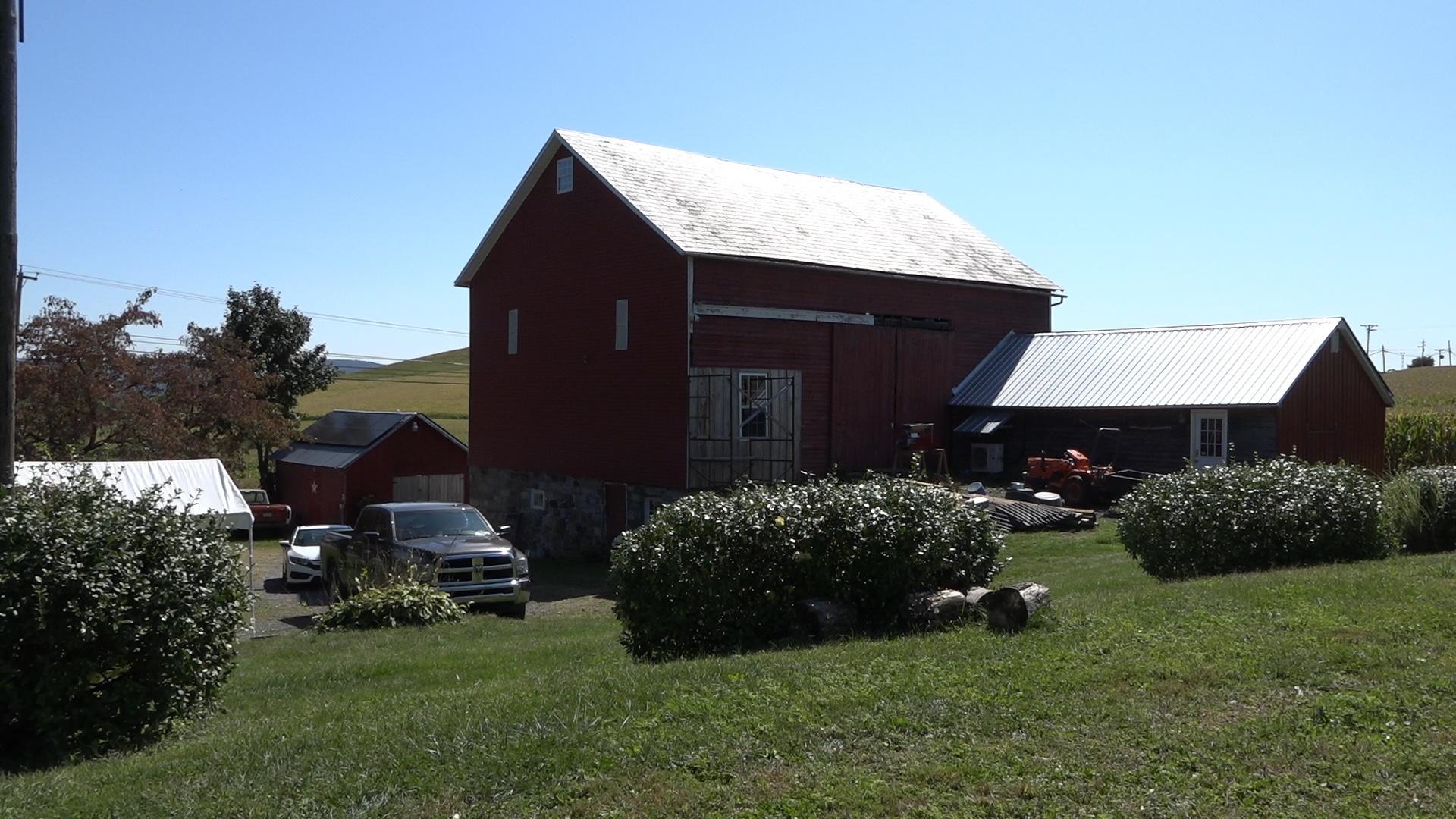LOWER MOUNT BETHEL TOWNSHIP, PA - On this farm, Ohana is everything.
“Ohana [in Hawaiian] means family, also referencing that no one is left behind,” says Francine Huber, “Having Kainoa, he was our first born and that was the start of our family. Ohana in our foundation, and it also stands for Open Hearts Against Narcotics Addiction and we continue to go through the recovery of addiction even through Kainoa’s not here, we are family for all of those that continue to struggle.”
Francine Huber, founder of Kainoa’s Ohana in Lower Mount Bethel Township, Pennsylvania lost her son, Kainoa, in October of 2017; when the then 23-year-old suffered a fatal fentanyl overdose.
Kainoa’s addiction probably started when he was a sophomore. And we were not aware of some of the difficulties that were happening you know, as parents of teenagers you never know what’s normal, what’s not normal, never having an idea of really the effects of heroin addiction,” Fran tells PBS39 News Tonight Reporter, K.C. Lopez, “My son was very bright. He was very kind. He was a very funny guy. After my son passed away we lived in secret, we lived in shame and judgement and when you have lost the love of your life, you tackle that fear. And if I have to be the face of addiction, of a family trying to help, then I want to do that.”
After losing their son, Fran and her husband Scott, knew they had so much to offer other families going through the same battle they had endured. The Hubers tell me, their son, had the resources to recover, but addiction is a powerful thing. After being released from rehab, Kainoa, like so many other recovering addicts, struggled to focus on something other than getting another fix. After his passing, they decided to use their farm to begin life again and created a program for recovering addicts to volunteer their time on the farm and put their free time to good use.
“A lot of this movement of our foundation is based on just working with our son when he lived with us. He would participate in stuff that we did here which actually brought a smile to his face,” says Scott Huber, “We are going to be building beehives, palette furniture like Adirondack chairs from deconstructed pallets and we are going to be doing fundraising to convert our barn space into a four season meeting area so we’ll have a kitchen area and bathrooms so we’ll be able to work inside and use what we have; crops locally and from our facility to teach them canning and basic preserving foods and old fashioned farm chores and tasks.”
Here on the Huber Family Farm, healing from substance abuse is a lot like farming. New skills, patterns and techniques of coping and living are practiced every day. With each seed sown, a new chance at clean living begins.
“There are so many that say, it rewards them, it gives them a positive outlook on contributing and seeing the result on what that can bring whether it’s a flower or something that can feed your family; food for the soul,” explains Fran, “And you get back to nature, and you let that earth nurture you with something that is revived in your spirit.”
Two years after their son’s death, and since officially launching this month, the Hubers have established a unique path to recovery and addiction education unlike most. The system behind Kainoa’s Ohana provides therapeutic work organizers say fosters professional and valuable life skills that gets those battling through substance abuse in the field and under the sun; reconnecting with nature and themselves. Through volunteering, those with at least 90 days of sobriety use their hands to tend the fields, their minds to care for crops and their hearts to make use of their new purpose creating a new outlook on life outside of addiction.
“We’ve seen and we’ve read about whole communities in particular, there’s a community in Italy with 15 hundred active, in recovery adults that are doing this. And it’s working. In a tiered method, where they live (which we are not residential) but they live in a farm community, and the whole community works with them in their recovery and its been successful,” Scott tells Lopez, “So we wanted to take this on, on a smaller scale, because we’re not in a big city, we’re kind of rural. But this area has been hit pretty hard with substance abuse and losses and people still in recovery. So, we want to help in that way, use our farm and it works for us. The therapy, working the land, and growing crops and even flowers, sunflowers and creating little chickens and feeding little chickens. It’s fun to see what you’re creating and growing and it makes me feel good so we wanted to offer that to other people. “
Now, the Hubers are hoping to connect with other local organizations and businesses to provide those in recovery that they assist, chances at employment, help fundraise and foster an even larger sense of community that will carry those battling addiction, and their loved ones, making them truly feel like ohana.
“...give a hand. You know, this is what family means. We don’t have to be blood related but to be family is to join together. We are all ohana, we are all a community.”



